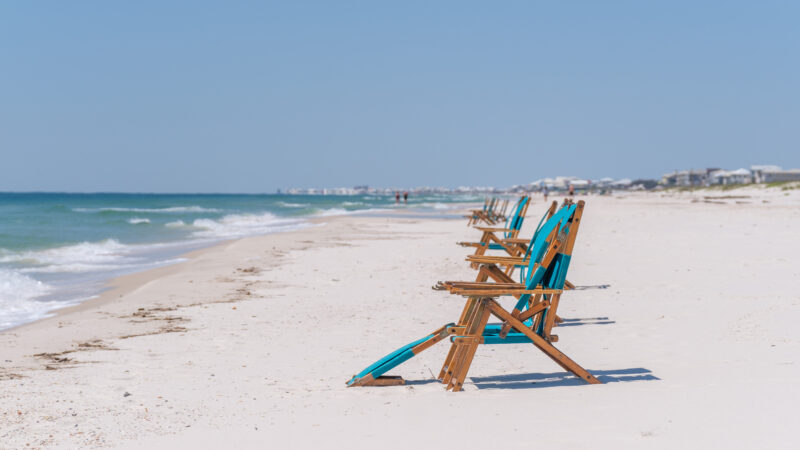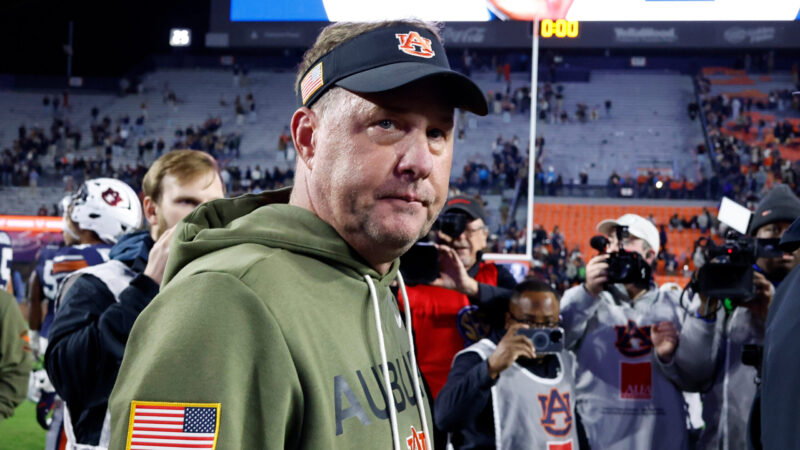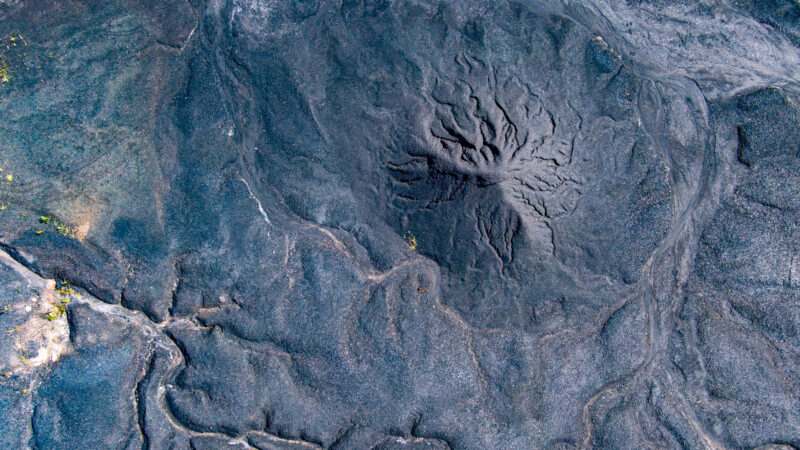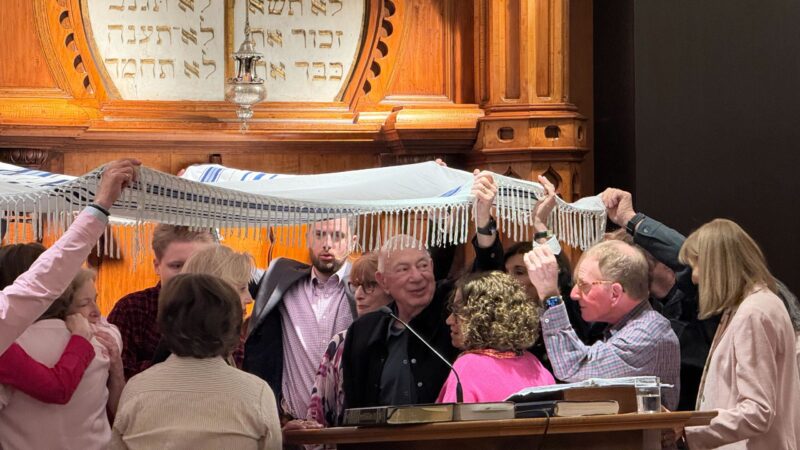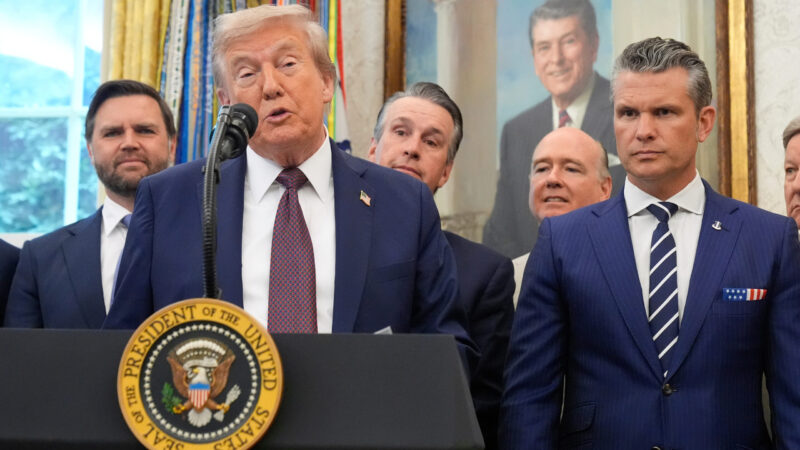Trump’s geographic renaming plans leave mapmakers pondering what to do next
By Laurie Kellman and Hillel Italie
What’s in a name change, after all?
The water bordered by the Southern United States, Mexico and Cuba will be critical to shipping lanes and vacationers whether it’s called the Gulf of Mexico, as it has been for four centuries, or the Gulf of America, as President Donald Trump ordered this week. North America’s highest mountain peak will still loom above Alaska whether it’s called Denali, as ordered by former President Barack Obama in 2015, or changed back to Mt. McKinley as Trump also decreed.
But Trump’s territorial assertions, in line with his “America First” worldview, sparked a round of rethinking by mapmakers and teachers, snark on social media and sarcasm by at least one other world leader. And though Florida Gov. Ron DeSantis put the Trumpian “Gulf of America” on an official document and some other gulf-adjacent states were considering doing the same, it was not clear how many others would follow Trump’s lead.
Mexican President Claudia Sheinbaum joked that if Trump went ahead with the renaming, her country would rename North America “Mexican America.” On Tuesday, she toned it down: “For us and for the entire world it will continue to be called the Gulf of Mexico.”
The politics of maps are undeniable
Map lines are inherently political. After all, they’re representations of the places that are important to human beings — and those priorities can be delicate and contentious, even more so in a globalized world where multiple nations often share the same maps.
There’s no agreed-upon scheme to name boundaries and features across the Earth.
“Denali” is the mountain’s preferred name for Alaska Natives, while “McKinley” is a tribute to President William McKinley, designated in the late 19th century by a gold prospector. China sees Taiwan as its own territory, and the countries surrounding what the United States calls the South China Sea have multiple names for the same body of water.
The Persian Gulf has been widely known by that name since the 16th century, although usage of “Gulf” and “Arabian Gulf” is dominant in many countries in the Middle East. The government of Iran — formerly Persia — threatened to sue Google in 2012 over the company’s decision not to label the body of water at all on its maps. Many Arab countries don’t recognize Israel and instead call it Palestine. And in many official releases, Israel calls the occupied West Bank by its biblical name, “Judea and Samaria.”
Americans and Mexicans diverge on what to call another key body of water, the river that forms the border between Texas and the Mexican states of Chihuahua, Coahuila, Nuevo Leon and Tamaulipas. Americans call it the Rio Grande; Mexicans call it the Rio Bravo.
Trump’s executive order — titled “Restoring Names That Honor American Greatness” — concludes thusly: “It is in the national interest to promote the extraordinary heritage of our Nation and ensure future generations of American citizens celebrate the legacy of our American heroes. The naming of our national treasures, including breathtaking natural wonders and historic works of art, should honor the contributions of visionary and patriotic Americans in our Nation’s rich past.”
But what to call the gulf with the 3,700-mile coastline?
“It is, I suppose, an internationally recognized sea, but (to be honest), a situation like this has never come up before so I need to confirm the appropriate convention,” said Peter Bellerby, who said he was talking over the issue with the cartographers at his London company, Bellerby & Co. Globemakers. “If, for instance, he wanted to change the Atlantic Ocean to the American Ocean, we would probably just ignore it.”
For some, it’s decision time
As of Wednesday night, map applications for Google and Apple still called the mountain and the gulf by their old names. Spokespersons for those platforms did not immediately respond to emailed questions.
A spokesperson for National Geographic, one of the most prominent map makers in the U.S., said this week that the company does not comment on individual cases and referred questions to a statement on its web site, which reads in part that it “strives to be apolitical, to consult multiple authoritative sources, and to make independent decisions based on extensive research.” National Geographic also has a policy of including explanatory notes for place names in dispute, citing as an example a body of water between Japan and the Korean peninsula, referred to as the Sea of Japan by the Japanese and the East Sea by Koreans.
The Associated Press, which disseminates news around the world to multiple audiences, will refer to the Gulf of Mexico by its original name while acknowledging the name Gulf of America. AP will, however, use the name Mount McKinley instead of Denali; the area lies solely in the United States and as president, Trump has the authority to change federal geographical names within the country.
In discussion on social media, one thread noted that the Sears Tower in Chicago was renamed the Willis Tower in 2009, though it’s still commonly known by its original moniker. Pennsylvania’s capital, Harrisburg, renamed its Market Street to Martin Luther King Boulevard and then switched back to Market Street several years later — with loud complaints both times. In 2017, New York’s Tappan Zee Bridge was renamed for the late Gov. Mario Cuomo to great controversy. The new name appears on maps, but “no one calls it that,” noted another user.
“Are we going to start teaching this as the name of the body of water?” asked one Reddit poster on Tuesday.
“I guess you can tell students that SOME PEOPLE want to rename this body of water the Gulf of America, but everyone else in the world calls it the Gulf of Mexico,” came one answer. “Cover all your bases — they know the reality-based name, but also the wannabe name as well.”
Wrote another user: “I’ll call it the Gulf of America when I’m forced to call the Tappan Zee the Mario Cuomo Bridge, which is to say never.”
Auburn fires coach Hugh Freeze following 12th loss in his last 15 SEC games
The 56-year-old Freeze failed to fix Auburn’s offensive issues in three years on the Plains, scoring 24 or fewer points in 17 of his 22 league games. He also ended up on the wrong end of too many close matchups, including twice this season thanks partly to questionable calls.
In a ‘disheartening’ era, the nation’s former top mining regulator speaks out
Joe Pizarchik, who led the federal Office of Surface Mining Reclamation and Enforcement from 2009 to 2017, says Alabama’s move in the wake of a fatal 2024 home explosion increases risks to residents living atop “gassy” coal mines.
‘It’s like feeling the arms of your creator just wrapped around you’: a visit to a special healing Shabbat
Members of Temple Emanu-El in Birmingham gathered recently for their traditional Friday Shabbat service. But this particular service was different, as could be seen by all the people dressed in their finest pink.
Space Command is coming to Huntsville. What might that mean for first-time homebuyers
While Huntsville has been a more affordable market than other growing cities, what’s it been like for those looking for their first home?
Colorado says relocation of Space Command to Alabama is ‘punishment’ for mail-in voting
The litigation announced by Colorado Attorney General Phil Weiser asks a federal judge to block the move as unconstitutional.
Breaking down Alabama’s CHOOSE Act
It’s been a year since Alabama legislators passed the CHOOSE Act allowing families to apply for state funds to use towards homeschool expenses and tuition for participating private schools. The Alabama Daily News’ education reporter Trisha Powell Crain has been diving into how the funds are being used. WBHM’s Andrew Gelderman sat down with her to talk about what we’re seeing so far.

